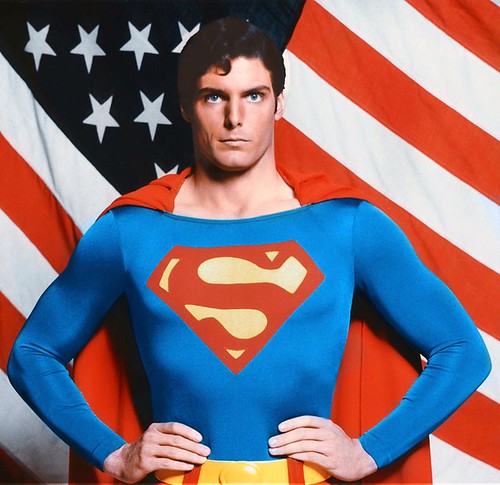Rebooting the Man of Steel
/
There was quite a bit of news earlier this week regarding the selection of Zack Snyder as the director of the upcoming reboot of the Superman franchise. What is more interesting is the selection of Christopher Nolan as an executive producer, who weeded out a list of potential directors down to Snyder. The placement of both men has me interested in Superman again, because I think that they have the beginnings of something that could work. However, a successful Superman project will need to reinvent itself compared to Superman Returns.
Christopher Nolan's takes on the Caped Crusader with Batman Begins and The Dark Knight was a major departure from the prior Batman films, focusing not only on action, but delving into the motivations and psyche of Bruce Wayne and his alter ego. The Dark Knight went further, placing Batman into a philosophical context, pushing the characters to their ideological extremes: the Batman as an avatar for law and order, with the Joker representing absolute chaos, existing only to counterbalance the influence of The Batman.
The approach worked, and Batman Begins and The Dark Knight have successfully brought the Batman franchise back from its darker moments. Clearly, Warner Brothers is seeking to do much of the same with Superman, and I believe that a similar approach will work. The people helming the project are ones are very safe choices. Nolan, obviously, has the creative vision that has brought back Batman, but also other films, such as this past summer's Inception and The Prestige, amongst others, while Snyder is well known for his prior comic book adaptations: Frank Miller's 300, and Alan Moore/Dave Gibbons' Watchmen, as well as Dawn of the Dead and his upcoming film, Sucker Punk, due out next year.
A successful Superman reboot will have to do more than look back towards the Christopher Reeves years, as was done in 2006's Superman Returns, which likewise sought to insert itself into the existing chronology. Watching that film, I was impressed with the technical execution and feel of the film, but came away underwhelmed: the film was there for the visuals, rather than the story and it should have been the other way around.
Already, there has been much written about what would need to be done to avoid another flop, ranging over characters, villains, storylines and so forth, but main element has been missed: Superman is powerful allegory, and as Nolan has revitalized the image of Batman by examining the impact and allegory behind such a character.
The approach shouldn't be interpreted as moving Superman into a Dark Knight grade of darkness, and I think that a dark and gritty Clark Kent would be a bad move. However, an idealized, light Superman amongst a realistic, gritty environment might be an interesting move, especially if they can frame a character story against it.
Superman is an invincible being (with his single issue with Kryptonite) and seeing him get shot or something is a bit of a neat trick, once, and while action will no doubt be part of the film, what they should be doing is what they did with The Dark Knight: put Superman up against an equal and opposite, not necessarily physically, but philosophically. This was the greatest strength of Nolan's revitalization of the franchise, because it gave the film an incredible amount of depth and realization that put it far above and beyond the typical summer blockbuster.
Furthermore, Nolan’s The Dark Knight touched on contemporary issues and fears that emanate from life today, things such as terrorism, corruption, and society’s ability to latch onto a hero. Heath Ledger’s Joker could be easily seen as the unpredictable nature of religious extremism, or something along those lines. In a big way, Snyder’s Superman would have to do something similar: link the plot to something that is far more relatable than a crazy scheme to build another continent and to gain a lot of prime real estate. I don’t know what form something like this would take, but any sort of look at the headlines should provide a wide range of things for the Man of Steel to tackle.
One thing is for sure though, Snyder's addition to the team will be an interesting one. He's yet to make a movie that's truly mind blowing - 300 was overblown visual CGI porn, while Watchman was an excellent translation, but it didn't quite capture everything in the comic - but he knows comics, loves them and if anything, the end result will be a fun take on the franchise. I'll certainly line up to see it.


